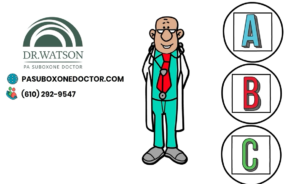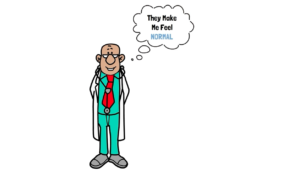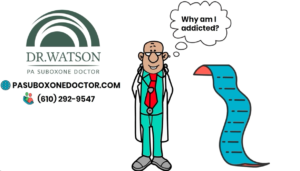Why Am I Addicted (1/3)
Two Models of Addiction – A Fresh Look at OUD
Introduction
Welcome to the first of a three-part video series created by Dr. James Watson, a board-certified addiction specialist with over 20 years of experience. These whiteboard-style videos were inspired by Dr. Watson’s patients, who found his approach resonated in ways other treatment programs did not. If you’re seeking answers about opioid use disorder (OUD) or substance use disorder (SUD), you’ve come to the right place.
Video Description
In this whiteboard animation, Dr. Watson explains two primary models of addiction. Historically, many believed addiction was simply a matter of using too much medication or hanging around bad influences. This is known as the Dependence Model. Dr. Watson contrasts it with the Genetic Model, which underscores that some people are predisposed to addiction based on their brain’s wiring, making it clear that addiction is a disease—not a choice.
More Detail on the Script
Dependence Model
- Centers on the belief that prolonged opioid use leads to physical dependence and withdrawal.
- Emphasizes detox as the main solution.
- Dr. Watson highlights why solely relying on detox often results in high relapse rates.
Genetic Model
- Focuses on a person’s inherent brain chemistry.
- Explains why some individuals become addicted quickly, while others do not.
- Repositions addiction as a medical condition rather than a moral failing.
By comparing these two models, Dr. Watson exposes the shortcomings of a one-size-fits-all approach to treatment and lays the groundwork for more nuanced, effective care.
How It Ties Into the Series
This first video sets the stage for understanding that addiction is deeply rooted in biology, not just environment. In the second blog/video, Dr. Watson will delve into the ABCs of opioid sensitivity—a critical concept for recognizing why each person’s journey with opioids can look so different. Then, the third blog/video will explore what it truly means to “feel normal” when living with OUD.
Call to Action
If you or someone you love is struggling with opioid or substance use, Dr. Watson and his team can help. Call our office today to speak with our dedicated staff or leave a message on our contact page. Don’t wait—take the first step toward a healthier life.







